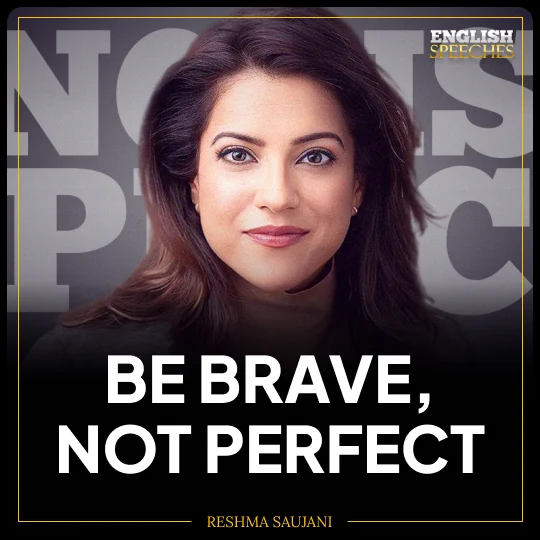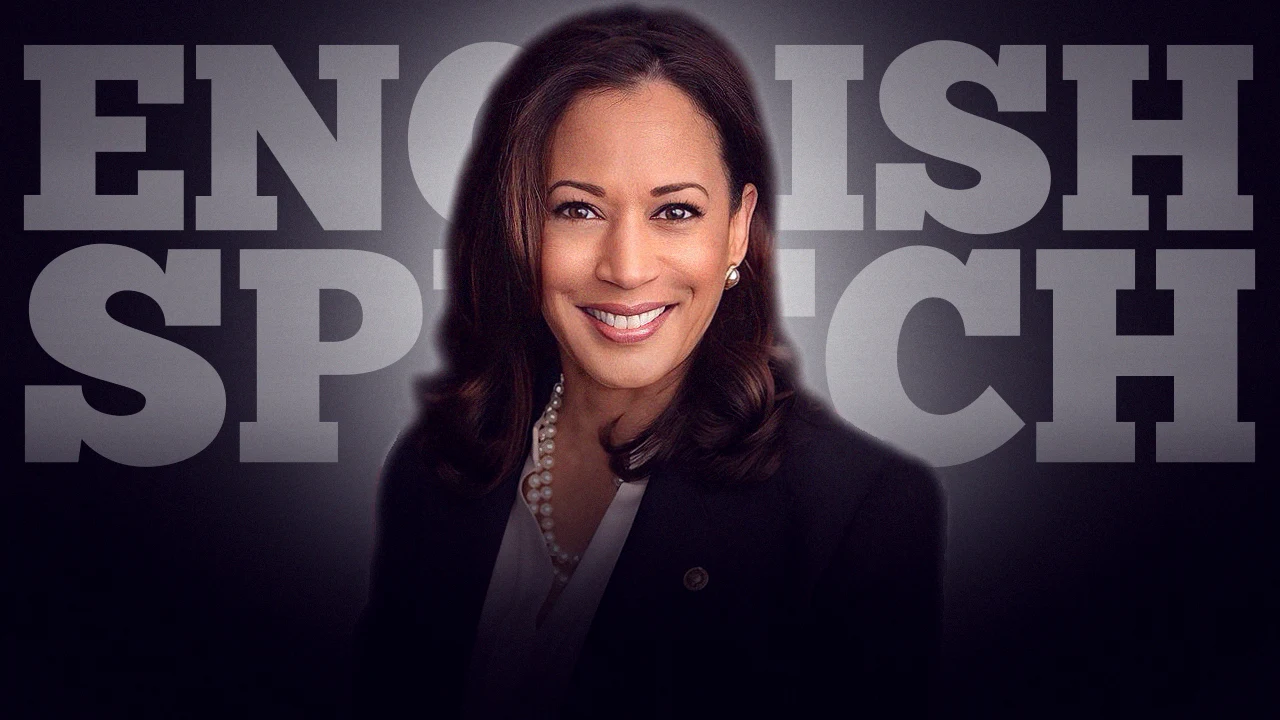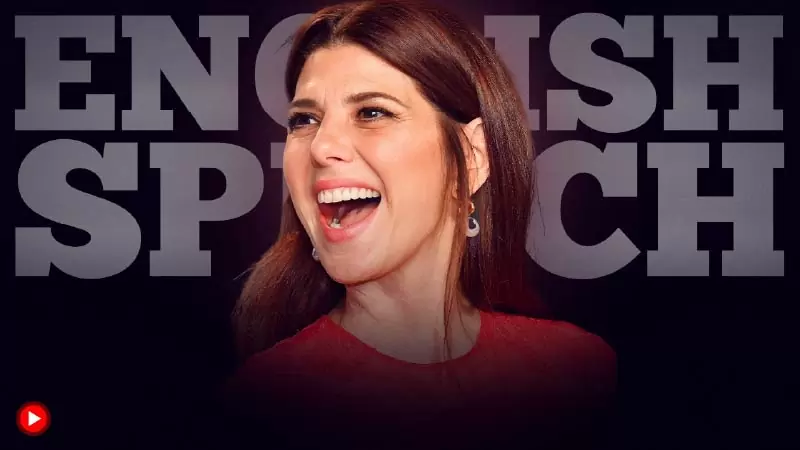Reshma Saujani’s 2017 speech at the HGSE Convocation delivered a powerful message on the necessity of embracing bravery over perfection, particularly for women in today’s rapidly changing world. As the founder of Girls Who Code, Saujani discussed the importance of women stepping into leadership roles, especially in the tech industry, and emphasized the need to break cultural and structural barriers that prevent women from achieving their full potential. Her speech highlighted key lessons for empowering women and fostering inclusivity in the next wave of technological advancement.
Bravery, Not Perfection
In her address, Reshma Saujani made a compelling case for why women must prioritize bravery over perfection. Drawing from personal experiences and societal observations, she underscored three crucial aspects of women’s progress in the modern world:
- Cultural Shifts: Saujani pointed out that women are often conditioned to be perfect, while men are encouraged to be brave. This cultural bias holds women back from taking risks and pursuing ambitious roles, especially in industries like technology.
- Leadership and Representation: Although women now earn the majority of higher education degrees, they remain underrepresented in leadership positions across sectors such as tech, government, and business. Saujani stressed the need for more women to break into these spaces and lead the future of innovation.
- Automation and the Future of Work: Saujani noted that the next technological revolution, driven by automation, is already underway. She emphasized that women must be part of this transformation to ensure diverse perspectives in shaping the future of work.
By encouraging graduates to embrace bravery and step outside their comfort zones, Saujani inspired her audience to become leaders of the new revolution and bring more diversity to fields where it is desperately needed.
Key Lessons and Themes
Reshma Saujani’s speech presented several key lessons that extend beyond women’s empowerment, offering insights for all aspiring leaders:
- Embracing Imperfection: Saujani shared her own struggles with perfectionism, explaining how her obsession with credentials hindered her progress. She called on young people, particularly women, to embrace imperfection and focus on taking bold steps forward.
- Breaking Barriers: Structural and cultural barriers continue to limit women’s access to leadership roles. Saujani urged her audience to challenge these norms by pushing themselves and others to take risks, pursue STEM careers, and enter underrepresented fields.
- Building a Diverse Future: As automation reshapes the global workforce, Saujani emphasized the need for diverse leadership to ensure that the future is inclusive. She highlighted how Girls Who Code is helping to bridge the gender gap in tech by empowering young women with coding skills.
- Personal Resilience: Saujani’s story of resilience, from multiple rejections at Yale Law School to founding a national movement, illustrated the power of persistence. She encouraged graduates to view setbacks not as failures but as opportunities for growth.
Saujani’s speech serves as a rallying cry for women and underrepresented groups to step into leadership roles and to face the future with courage and resilience. Her message of bravery, not perfection, is a reminder that the key to success lies in taking risks and embracing challenges without fear of failure.
Donwload available for Premium Subscribers
PDF Full Transcript
Explore every word with our concise PDF transcripts.
Audio Version
Immerse in speeches with clear, downloadable audios.
English Lesson
Enhance English skills with interactive speech lessons.
⚬ Free 30-day trial

”Be Brave, Not Perfect
Transcript
Graduates, deans, parents, and guests, thank you for inviting me to share this day with you. Thank you, Meg, for that powerful speech. The future is in good hands. I know it’s traditional for a commencement speaker to start off with a joke, but anyone who knows me knows that I’m super impatient and a little ADD, so I’m just going to cut to the chase.
You are graduating at a crazy time in history. I’m talking like top five earth-shattering, paradigm-shifting moments in human existence. There was the Enlightenment, the American Revolution, the Industrial Revolution, the Digital Revolution, and now automation is going to change everything about the way we live and the way we work. According to McKinsey, 45% of the tasks that people do manually are going to be automated using current technology alone. And the pace of innovation… it’s never been faster. That means the future is going to look nothing like the present.
Now, I’m not a historian, but I’ve been thinking about those other revolutions, the ones I mentioned a second ago, and it turns out they have some things in common, like they brought sweeping change to the world. They were the product of incredible vision, courage, and creativity. And, oh yeah, they were led by white guys. Now don’t get me wrong, I love white guys. It’s true. White guys are… they’re some of my best friends. They are. But let’s be real. They have never had a monopoly on good ideas. They’ve just occupied a platform that the rest of us haven’t had access to. And the good news is, that platform… it’s no longer out of reach.
In the last half century alone, women and people of color… we’ve been climbing. Women now earn the majority of bachelor’s, master’s, and doctoral degrees. So graduates, give yourself a big pat on the back. Today, some 40% of American women are our family’s breadwinners. We are so close to equality, and yet we have a problem. Because the next revolution… it’s underway. And its leaders, they don’t look like me. They look like tomorrow’s commencement speaker. And look, I don’t mean any shade to Zuckerberg. He’s brilliant, and he’s a really good guy, right? But America… it’s a big, beautiful, diverse country. And for all the progress that we’ve made, we are still vastly underrepresented in Congress, in the C-suite, and in the tech community.
So why? Why aren’t there more women in power? There’s no question that it’s a structural problem. From workplace discrimination to systematic sexism, to the lack of paid leave and affordable daycare, women just face extraordinary challenges that men don’t. But there’s another challenge that we face, and it’s not structural. It’s cultural. In our society, we train our boys to be brave, to throw caution to the wind, and follow their passions. And we train our girls to be perfect, to please, to play it safe, and to always get straight A’s. The result? Girls are kicking butt in the classroom, but they’re falling behind in the real world. And that’s because, in the real world, success is the product of bravery, not perfection.
And if we don’t start teaching our girls to be brave, they’re going to miss their chance to code the future in Silicon Valley, to build the future in the C-suite, and to legislate the future in Congress. And women are going to once again find themselves and their ideas on the sidelines of the revolution. And we can’t let that happen. Nothing is more important than solving this problem. And that’s what I need you to do when you walk across the stage tomorrow and you go out into the real world.
Now at this point, you’re probably wondering, who the hell is this lady, and why should I listen to her? Well, let me tell you a bit about my own journey, because I think it illustrates a shift that I’m talking about. I grew up in Schaumburg, Illinois. My parents were refugees expelled by the dictator Idi Amin from Uganda. There weren’t very many people in my community that looked like me. Sometimes the neighborhood kids would teepee our house. One time, I punched a bully in the face who called me a haji. Now, to be clear, violence is never a good idea, but damn, it felt good.
In school, I found my own advocacy organization, the Prejudice Reduction Interested Students Movement. Yes, a mouthful. I led my first march when I was 12 years old. By high school, I was pretty much set on what I wanted to do with my life. I dreamed of working in politics and social justice, so I decided I’d go to the best law school in the country, graduate at the top of my class, and run for office. I went to the library and found a copy of the U.S news & World Report, and I looked up what the number one law school was. You’ll have to forgive me, but it was Yale. I photocopied that page and tacked it to my wall. For years, I had one obsession and one obsession alone… getting into Yale Law School.
And then the time finally came. I finished college in three years, took the LSAT, and applied to my dream school. And I didn’t get in. So I came here to Harvard to study public policy at the Kennedy School. And the next year, I applied to Yale again. And I didn’t get in again. That should have been it, right? I should have just gone out there and changed the world. But I couldn’t shake the idea of needing that one perfect credential—a degree from Yale Law.
So I got myself a mentor, Leon Higginbotham, the first black jurist to come out of Yale Law and the former chief judge of the Federal Court of Appeals in Philadelphia. And he promised to write me a recommendation letter. He was like, “Don’t worry, Reshma. I got you. You will get in.” Boom. I was set. Except right before the applications were due, Leon had a stroke and died. I was devastated. I loved Leon. But also, I never did get that recommendation letter. Instead, I got a rejection letter. My third one from Yale.
At this point, most people would have packed up what was left of their dignity and just moved on to another law school. But I was convinced that my whole career, my whole life, was riding on a degree from Yale. Everyone I looked up to in politics, Bill and Hillary, like six attorney generals, half of the senators in Congress… they all went to Yale Law. Whatever I aspired to, I was sure that I needed Yale to get it.
So I made one last desperate attempt. At Leon’s funeral, I met the assistant to the dean of Yale Law, who, upon hearing my story, offered to make me an appointment with the dean. I got on the next train to New Haven, and before I knew it, I was standing before the man himself. And he offered me a deal. Go to any one of those other law schools for a year, make it into the top 10% of your class, and he’d admit me to Yale. I accepted admission to Georgetown, and the first year, I crushed it. I had no friends, no social life. I’d raise my hand in class and be like, “I know the answer,” and everybody would throw things at me. But I was number one in my class. And that fall, I transferred to Yale, where I spent the next two years partying. But who cares? I did it. I graduated from Yale Law. I had the perfect resume to do the kind of work I always wanted to do. Right? Well, not exactly.
When I graduated, I didn’t end up doing social justice work. I couldn’t resist the pull of the next perfect credential. I followed my classmates to a job at a white-shoe Wall Street law firm and spent the next six years defending bankers and hedge fund managers accused of securities fraud. Yep. So pretty much the opposite of social justice.
Fast forward to 2008, when I was watching my mentor, Hillary Clinton, give her first concession speech. She said something that resonated with me. She said, just because she had come up short, that didn’t mean that women should be discouraged from aiming high. That’s when it all clicked. All those years of working and waiting for a credential… that wasn’t aiming high. That was aiming low. So I quit my job, and I decided to run for Congress. I lost. Badly. Three years later, I ran for New York City public advocate and lost again. Less badly, but still pretty badly. I won’t lie. It hurt. But also, it was amazing.
Not being perfect was liberating, and chasing my dream and not a credential was the best decision I ever made. It turns out that when you get a taste for being brave, it’s kind of like a rush. It’s hard to stop. And that’s how I started Girls Who Code. During my first campaign, I visited a lot of New York City public schools, and I would go into their computer labs, and I’d see labs full of boys learning to code. No girls in sight. I was baffled. I mean, I knew that Silicon Valley was a boys club, but I didn’t know that that club started in high school. And that pissed me off. I wanted to do something about it. But this time, I didn’t ask anybody for permission. I didn’t wait until I had that perfect credential. I didn’t even bother to learn how to code. I just went for it. I called up a friend who lent me some office space, and that summer, we brought 20 girls together from New York City for seven weeks, and we taught them to code.
Five years later, we’ve taught 40,000 girls in all 50 states, effectively quadrupling the talent pipeline. So what’s the lesson? My obsession with perfection, with pedigrees and credentials… it was a dead end. Like, it literally led me to a funeral. All that time that I spent chasing Yale was time that I could have used to actually make a difference in the world. Bravery, not perfection, was the key that has unlocked every door that I have walked through since.
Mark Zuckerberg gets that, by the way. He was just a sophomore when he dropped out of Harvard to start Facebook. He could have totally failed, with no bachelor’s degree to fall back on, but he just went for it. It’s such a white guy thing to do. But it took me 33 years to figure out that brown girls, we can do white guy things too. But today’s young women… they don’t have 33 years to waste. Our world is transforming, and if girls and women don’t step up now, they’re going to be left behind. And that’s why I’m counting on you.
I’m not an expert in education. I only know from what I’ve seen in my own life and what I’ve observed at Girls Who Code. But the girls in our program… they’re brilliant. They’re talented. They are just as capable as the boys. But they’re afraid… afraid of imperfection, of critical feedback, of trying something that they may not excel at right away. They figure out what they’re good at early on, and they stick to it. They avoid less intuitive, more competitive subjects like coding and STEM. They’re not taught to be brave the way the boys are.
So what can we do? We can’t topple the structures without addressing the culture. The culture is the problem. And the solution, graduates… it’s you. In whatever capacity you pursue a career in the field of education, you or the people you manage or teach will be some of the most influential role models in a young girl’s life.
So here’s my ask. Don’t let our girls play it safe. Don’t let them limit themselves to the thing they think they’re best at or the thing they think they should do. Push them to be brave. Push them to take risks. Reward them for trying. Let’s challenge our girls to step outside of their comfort zone and tiptoe out to the very edge of their abilities. Because if you do your part, if we all do our part, then we will unleash the most badass generation of women leaders the world has ever seen.
I know every graduation speaker says it, but class of 2017, you are really going to change the world. Thank you, and congratulations.






